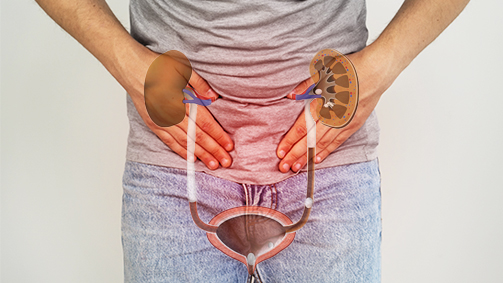
Understanding Bladder Stones: Causes, Symptoms, and Treatment
Bladder stones are a medical condition that can cause significant discomfort and, if untreated, lead to severe complications. Though less common than kidney stones, bladder stones are a serious concern that requires timely diagnosis and intervention. Here’s an engaging overview of what bladder stones are, their causes, symptoms, and treatment options, aimed at empowering you with the knowledge to take charge of your urinary health.
What Are Bladder Stones?
Bladder stones are hard mineral deposits that form in the bladder. They develop when minerals in concentrated urine crystallize and solidify, often due to incomplete emptying of the bladder. These stones can vary in size and number, ranging from tiny grains to larger, more problematic formations.
Bladder stones are more common in older adults, but they can affect people of all ages, including children in certain regions where dietary deficiencies or infections are prevalent. While small stones may pass without causing symptoms, larger stones can lead to irritation, obstruction, or infections in the urinary tract.
Understanding the root causes of bladder stones is key to preventing them. Here are some common factors:
- Incomplete Bladder Emptying: When the bladder does not empty fully, residual urine can concentrate, allowing minerals to crystallize.
- Urinary Tract Infections (UTIs): Persistent UTIs can alter urine composition, increasing the risk of stone formation.
- Enlarged Prostate: In men, an enlarged prostate can obstruct urine flow, leading to bladder stones.
- Bladder Diverticula: These are pouches in the bladder wall that can trap urine and contribute to stone formation.
- Foreign Objects: Catheters or other objects in the bladder can act as a nucleus for stone development.
- Dietary Factors: High intake of certain minerals like calcium or oxalate, coupled with low fluid intake, can predispose individuals to stone formation.
- Neurological Disorders: Conditions affecting bladder control can lead to incomplete emptying, increasing the risk of stones.
Symptoms to Watch For
Bladder stones don’t always cause symptoms, especially when they are small. However, when symptoms do appear, they can significantly impact your quality of life. Common signs include:
- Pain: A burning sensation or discomfort in the lower abdomen, especially during urination.
- Frequent Urination: A constant urge to urinate, often with little output.
- Blood in Urine (Hematuria): Pink, red, or dark urine indicating the presence of blood.
- Cloudy or Foul-Smelling Urine: A sign of possible infection.
- Interrupted Urine Flow: Difficulty starting urination or a weak stream that stops and starts.
- Urinary Infections: Recurring UTIs may indicate the presence of bladder stones.
If you experience symptoms suggestive of bladder stones, it’s crucial to consult a healthcare provider. Diagnosis typically involves:
- Urinalysis: Examining urine for crystals, blood, or infection.
- Imaging: X-rays, ultrasounds, or CT scans can detect the size, number, and location of bladder stones.
- Cystoscopy: A thin, flexible tube with a camera is inserted into the bladder for direct visualization.
Treatment Options
Treatment depends on the size, number, and severity of the bladder stones. Here are the most common approaches:
- Increased Fluid Intake: For small stones, drinking plenty of water can help flush them out naturally.
- Medications: Certain drugs may help manage pain or dissolve specific types of stones.
- Cystolitholapaxy: A minimally invasive procedure where a cystoscope is used to break up and remove stones.
- Surgery: In rare cases of large or multiple stones, open surgery may be necessary.
- Treating Underlying Causes: Addressing issues like an enlarged prostate or chronic infections is essential to prevent recurrence.
Preventing Bladder Stones
Prevention is always better than cure. Here are steps to reduce your risk:
- Stay Hydrated: Drinking plenty of water dilutes urine, reducing the risk of crystal formation.
- Prompt Treatment of UTIs: Don’t ignore symptoms of urinary infections.
- Manage Chronic Conditions: Keep conditions like an enlarged prostate or diabetes under control.
- Balanced Diet: Limit foods high in oxalates and calcium if recommended by your doctor.
- Regular Check-ups: Regular medical visits can help catch potential issues early.
Final Thoughts
Bladder stones, though often manageable, should not be taken lightly. Awareness of the symptoms and prompt medical attention can prevent complications and improve outcomes. By adopting healthy habits and addressing underlying causes, you can safeguard your urinary health and minimize the risk of bladder stones.
If you’re experiencing symptoms or want to learn more about bladder stone prevention, consult a healthcare professional. A proactive approach to urinary health can make all the difference.



